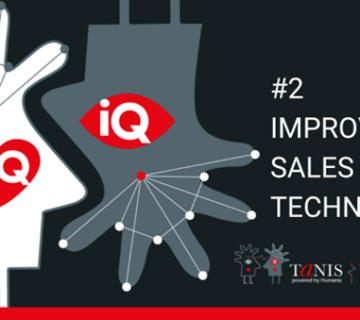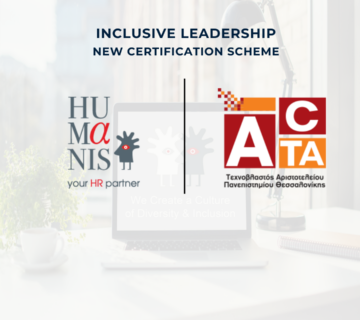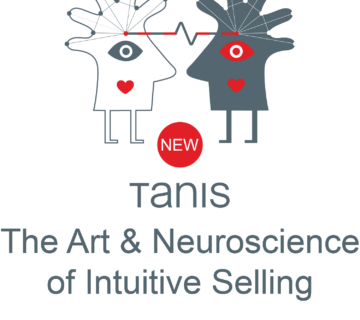It’s easier than you think! Or is it?
It’s been a little over 15 days since Greece has entered its second lockdown, closing up schools, bars and restaurants and most retail businesses. You’d think that by now we’re used to staying home and binging on Netflix all day! But it seems that this second lockdown has been testing our psychological stamina more than the first one, making it even harder for law enforcement to apply the rules and regulations, in spite of a spike in cases and deaths.
So, I’ve been asking myself “What was the drive during the first lockdown and how are we missing the mark with this one…?”
You don’t have to be a rocket scientist to recognize the lack of resiliency! A subject much discussed about throughout 2020 and a recurrent topic in LinkedIn posts. Yes, we must be more resilient and yes, this is a trait that companies are looking for and will be looking for in the future. What most posts fail to enlighten us about though is, how to become more resilient. How do I become more committed, dedicated and empowered and how do I not let failures get the best of me?
This is where Dr Bill Guillory comes in: because as we were marathon-viewing our favorite series, during US’s first lockdown, he sat down and thought about what makes us winners even in the most adverse circumstances. And here’s what he came up with: we simply must practice six skills. Well, that shouldn’t be very hard to do…. Or is it?
First skill Dr Guillory believes we must practice is Perseverance: Look at the goal and get to it no matter what hits you along the way! Think of when you trained for your 10k run! Or when you went after that promotion you were looking for! The goal must tap into your value system: that certainty that you can make it happen no matter what, because it is something you believe in with all your heart.
Which brings us to the second skill: Confidence: Yes, I can do it because I have faith in my abilities. Am I always this confident? Maybe not but I don’t let people or emotions bring me down. Instead, I shift my focus to myself and find ways to get strength from within, celebrating small victories and capitalizing on past experiences.
This past year has been especially challenging for most of us. Learning new ways to work, having to socially isolate for long periods and re-defining personal/family/professional relationships has been nerve breaking. The people who stayed emotionally calm in the midst of this mayhem are the ones who will persevere. Emotional calmness is the ability to center your mind and accept the reality in which we live in, without letting negative emotions such as anger and denial knock you off balance. And that’s the third skill we must practice!
 But “everybody needs a little help sometimes”, as the song goes! And to be open and accepting of all the help you can get, is the ticket to navigating through turbulent times. Don’t believe you know it all: seek help, be vulnerable (watch Brene Brown’s Ted Talk on The Power of Vulnerability here) and accept change as a fact of life. As Dr Guillory says, “make a habit of listening more and talking less”.
But “everybody needs a little help sometimes”, as the song goes! And to be open and accepting of all the help you can get, is the ticket to navigating through turbulent times. Don’t believe you know it all: seek help, be vulnerable (watch Brene Brown’s Ted Talk on The Power of Vulnerability here) and accept change as a fact of life. As Dr Guillory says, “make a habit of listening more and talking less”.
During the first and mostly during this second lockdown, we have been listening to pleas from government officials and doctors to stay home, reduce our daily outings to the most urgent and socially distance ourselves from our friends. In these pleas, the word “personal responsibility” often came up. It was always up to us to understand that, if the virus was spreading, if people were getting sick and dying, it was because we didn’t accept that we were personally responsible for letting this happen. It is very challenging to accept that everything that happens in our lives is our own responsibility and that we are accountable for it. But when we do realize this and know that we can change it, only then will we be able to create a future like we want it to be.
Will there be setbacks? Will there be adversities and bigger than life moral dilemmas? Of course! Dr Guillory believes that one should be prepared by realistically accepting the consequences of one’s actions but, always keeping a positive attitude about the outcome, is essential. This is where we can go back and look at what goals make us persevere. The goals that are linked to our values, that go deep into our subconscious and surface when we need to address a difficult situation. Realistic Assessment is the most valuable skill towards resiliency. It will keep us going because we are optimistic that we can solve any problem, we believe in a greater cause and we’re dedicated to adaptation and change.
Practice makes perfect as the saying goes, since resilience demands mindset transformation. It’s up to us to find ways to daily exercise our resiliency skills.
If you want to know more about Resilience and find more tips on how to reinforce it, you can get in touch with Innovations International and Humanis HR Consultants




